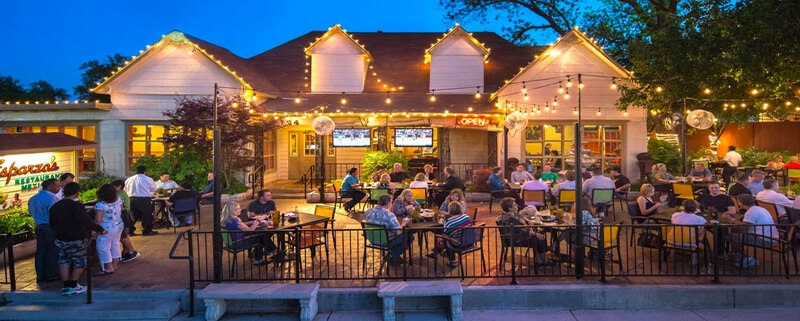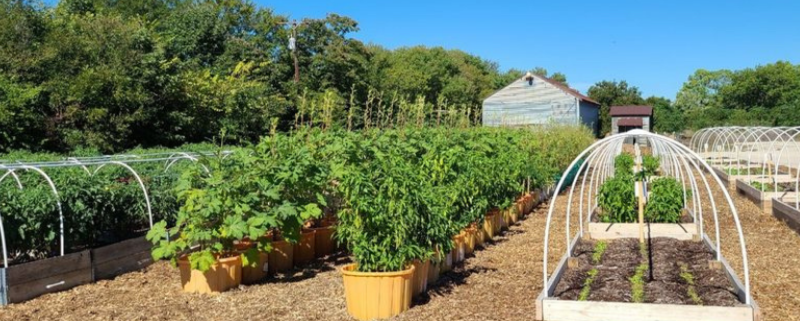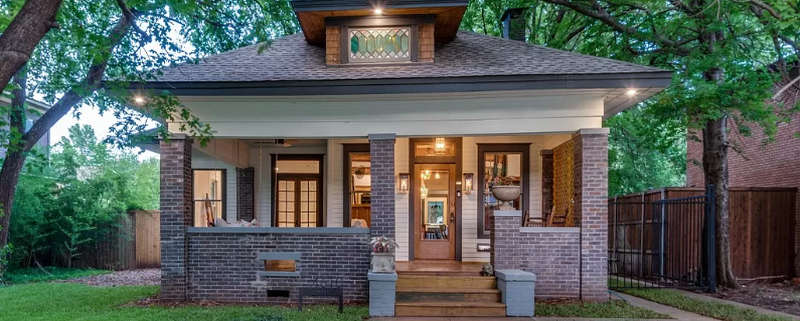Dallas, Texas, is renowned for its vibrant culinary scene, boasting a diverse array of dining options that cater to every palate. From high-end restaurants to charming food trucks, the city’s neighborhoods each offer their own unique gastronomic experiences. Whether you’re a resident or a visitor, exploring the food culture in Dallas can be a delightful adventure. In this guide, we’ll explore some of the best Dallas neighborhoods for food and dining, highlighting what makes each area special.
Deep Ellum: A Hub of Creativity and Flavor
Deep Ellum is one of Dallas’s most eclectic neighborhoods, known for its vibrant arts scene and historic significance. It’s also a foodie haven, offering a wide variety of dining options that reflect its creative spirit.
Eclectic Dining Options
Deep Ellum’s food scene is as diverse as its artistic community. You’ll find everything from classic Texas barbecue to innovative fusion cuisine. Some local favorites include:
- Pecan Lodge: Known for its mouthwatering brisket and sausage, Pecan Lodge is a must-visit for barbecue lovers.
- Twisted Root Burger Co.: This quirky spot offers delicious burgers with unique toppings, alongside a fun and laid-back atmosphere.
- Monkey King Noodle Company: For a taste of authentic Chinese street food, this noodle house offers handmade noodles and dumplings that are sure to satisfy.
Nightlife and Late-Night Eats
Deep Ellum is also famous for its nightlife, with numerous bars, live music venues, and late-night eateries. Whether you’re looking for a post-concert snack or a place to unwind with friends, this neighborhood has plenty to offer.
Bishop Arts District: Charming and Trendy
The Bishop Arts District is a historic and trendy area in Dallas that has become a culinary hotspot. Known for its walkable streets and charming atmosphere, this neighborhood offers a delightful mix of dining options.
Farm-to-Table and Artisan Eateries
Bishop Arts District is home to many farm-to-table restaurants and artisan eateries that prioritize fresh, locally-sourced ingredients. Notable spots include:
- Lucia: A small, intimate Italian restaurant that focuses on handmade pasta and seasonal dishes.
- Oddfellows: A popular brunch destination known for its delicious coffee and creative menu items.
- Emporium Pies: This dessert shop offers a variety of homemade pies that are as beautiful as they are delicious.
International Flavors
In addition to local fare, Bishop Arts District also offers a range of international cuisines, from Mexican to Mediterranean, ensuring that there’s something for everyone.
Uptown: Elegant and Upscale
Uptown Dallas is an upscale neighborhood known for its sophisticated dining scene. With a plethora of high-end restaurants and chic eateries, Uptown is the perfect destination for those looking to indulge in fine dining.
High-End Restaurants
Uptown is home to some of Dallas’s most renowned restaurants, where culinary excellence and elegant ambiance go hand in hand. Highlights include:
- The Capital Grille: Known for its dry-aged steaks and extensive wine list, this restaurant offers a luxurious dining experience.
- Fearing’s Restaurant: Located in the Ritz-Carlton, Fearing’s offers upscale Southwestern cuisine crafted by celebrity chef Dean Fearing.
- Uchi: This award-winning Japanese restaurant offers an innovative menu that combines traditional Japanese techniques with modern flavors.
Trendy Cafes and Bistros
Uptown also features a variety of trendy cafes and bistros, perfect for a casual yet stylish meal. These spots are ideal for brunch, lunch, or a relaxed dinner with friends.
Lower Greenville: Vibrant and Lively
Lower Greenville is a lively neighborhood known for its vibrant nightlife and diverse dining options. From casual eateries to trendy gastropubs, this area offers a dynamic food scene.
Gastropubs and Craft Breweries
Lower Greenville is home to several popular gastropubs and craft breweries, where you can enjoy delicious food alongside a wide selection of beers. Some local favorites include:
- Truck Yard: This outdoor venue offers a rotating selection of food trucks, along with a beer garden and live music.
- HG Sply Co.: Known for its healthy, paleo-inspired menu, HG Sply Co. also boasts a rooftop patio with great views of the neighborhood.
- The Libertine Bar: A cozy spot offering an extensive beer list and a menu of elevated pub fare.
Ethnic Eats
Lower Greenville also features a variety of ethnic restaurants, offering everything from Mexican to Mediterranean cuisine. These eateries add to the neighborhood’s diverse and exciting food scene.
Oak Lawn: Inclusive and Diverse
Oak Lawn is one of Dallas’s most diverse neighborhoods, known for its inclusive atmosphere and vibrant dining scene. This area offers a wide range of dining options that reflect its eclectic community.
LGBTQ+ Friendly Dining
Oak Lawn is a hub for the LGBTQ+ community, and many of its restaurants and bars are LGBTQ+ friendly, creating a welcoming and inclusive dining environment. Popular spots include:
- The Black Tie Dinner: Known for its philanthropic efforts, this annual event features top chefs and provides a unique dining experience.
- Sue Ellen’s: A lively bar and restaurant that offers great food and a fun atmosphere, particularly popular within the LGBTQ+ community.
- Hunky’s Old-Fashioned Hamburgers: A local favorite for classic American fare in a friendly, welcoming setting.
International Cuisine
Oak Lawn also boasts a variety of international restaurants, reflecting the neighborhood’s diverse population. Whether you’re in the mood for Thai, Italian, or Indian, you’ll find plenty of options to satisfy your cravings.
Trinity Groves: Innovative and Experiential
Trinity Groves is a unique dining destination in Dallas, known for its innovative and experiential food concepts. This area is home to a variety of restaurants and food businesses that offer something new and exciting.
Restaurant Incubator
Trinity Groves is famous for its restaurant incubator program, which helps new chefs and restaurateurs launch their concepts. This means there’s always something new and exciting to try. Highlights include:
- Beto & Son: Offering modern Mexican cuisine with a twist, this restaurant is known for its Instagram-worthy dishes and innovative cocktails.
- Cake Bar: A dessert shop that offers a variety of delicious cakes and baked goods, perfect for satisfying your sweet tooth.
- Amberjax Fish Market Grille: Known for its fresh seafood and relaxed atmosphere, this spot is a must-visit for seafood lovers.
Scenic Views and Outdoor Dining
Trinity Groves offers stunning views of the Dallas skyline and plenty of outdoor dining options, making it a great place to enjoy a meal with a view. The area’s patio dining options are perfect for enjoying Dallas’s mild weather.
Knox-Henderson: Hip and Trendy
Knox-Henderson is a hip and trendy neighborhood known for its stylish boutiques, lively bars, and diverse dining options. This area offers a vibrant food scene that caters to a variety of tastes.
Contemporary American Cuisine
Knox-Henderson is home to several contemporary American restaurants that offer modern takes on classic dishes. Popular spots include:
- The Porch: Known for its comfort food with a modern twist, The Porch offers a relaxed yet stylish dining experience.
- Fireside Pies: This pizzeria is famous for its wood-fired pizzas and cozy ambiance, making it a great spot for a casual meal.
- Velvet Taco: Offering creative and delicious tacos, this spot is perfect for a quick and satisfying meal.
Global Flavors
In addition to American cuisine, Knox-Henderson features a variety of restaurants offering global flavors, from Japanese sushi bars to Mediterranean eateries. This diversity ensures there’s something for everyone.
Victory Park: Modern and Exciting
Victory Park is a modern and exciting neighborhood that offers a dynamic food scene. Known for its sleek architecture and proximity to the American Airlines Center, this area is a popular destination for both dining and entertainment.
Upscale Dining
Victory Park is home to several upscale restaurants that offer high-end dining experiences. Notable spots include:
- Billy Can Can: This modern saloon offers a creative menu and a stylish, Western-inspired atmosphere.
- Jalisco Norte: Known for its contemporary Mexican cuisine, this restaurant offers a sophisticated dining experience.
- Sloane’s Corner: Offering American bistro fare with a modern twist, Sloane’s Corner is a great spot for a chic meal.
Casual Eateries and Cafes
In addition to upscale dining, Victory Park also features a variety of casual eateries and cafes, perfect for a quick bite or a relaxed meal. Whether you’re looking for a coffee shop or a burger joint, you’ll find plenty of options in this vibrant neighborhood.
Dallas is a city that celebrates food and dining in all its forms. From the eclectic and artsy Deep Ellum to the upscale and modern Victory Park, each neighborhood offers its own unique culinary experiences. Whether you’re in the mood for high-end dining, international flavors, or a casual bite, Dallas’s diverse neighborhoods have something to satisfy every palate. Exploring these areas will not only introduce you to some of the best food in the city but also provide a deeper appreciation for Dallas’s rich and varied culinary landscape.







